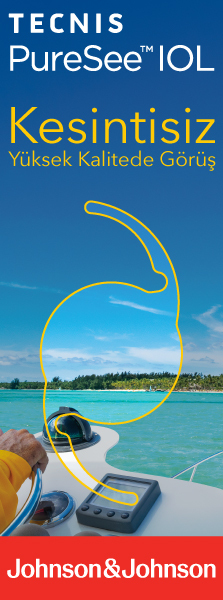2MD, Retina, Beyoglu Training and Research Hospital, Beyoglu, Turkey DOI : 10.37845/ret.vit.2021.30.7 Purpose: To evaluated the efficacy of switching to intravitreal aflibercept (IVA) injection to treat polypoidal choroidal vasculopathy (PCV) refractory to intravitreal ranibizumab (IVR). Materials and Methods: In this retrospective study, medical records of 29 eyes of 29 patients with PCV treated with IVA (2 mg / 0.05 mL) followed by IVR switch were reviewed. A treatment history of 3 consecutive monthly IVR as loading dose followed by a pro re nata regimen phase over 6 months was seen for all patients and followed by the last for 3 consecutive monthly of IVR received. All patients who were refractory to IVR (defi ned as recalcitrant subretinal or intraretinal fluid in optical coherence tomography (OCT) and unchanged or decreased visual acuity (VA) compared with those at time of first IVR injection, despite receiving the last 3 consecutive monthly IVR injections following 12 months. The switch time to IVA was accepted as the baseline. Visual and anatomical changes were recorded at baseline and at months 1, 3 and 6, respectively.
Results: Visual acuity levels significantly improved from 0.73 ± 0.49 logarithm of the minimum angle of resolution (log MAR) at baseline to 0.58 ± 0.38 log MAR 6 months after switching to afl ibercept (p = 0.037). The central macular thickness decreased signifi cantly from 349.58 ± 101.81 at baseline to 308.68 ± 94.58 at month 6 (p= 0.001). Of 16 eyes with polypoidal lesions at baseline, the polypoidal lesions regressed completely in 6 eyes (37%) at month 6.
Conclusion: Administering intravitreal aflibercept injection for patients with polypoidal choroidal vasculopathy refractory to ranibizumab maintained or improved visual acuity and reduced or eliminated exudative lesions and occluding polypoidal lesions without adverse events with short-term follow-up.
Keywords : Polypoidal choroidal vasculopathy, Choroidal neovascular membrane, Anti-vascular endothelial growth factor




